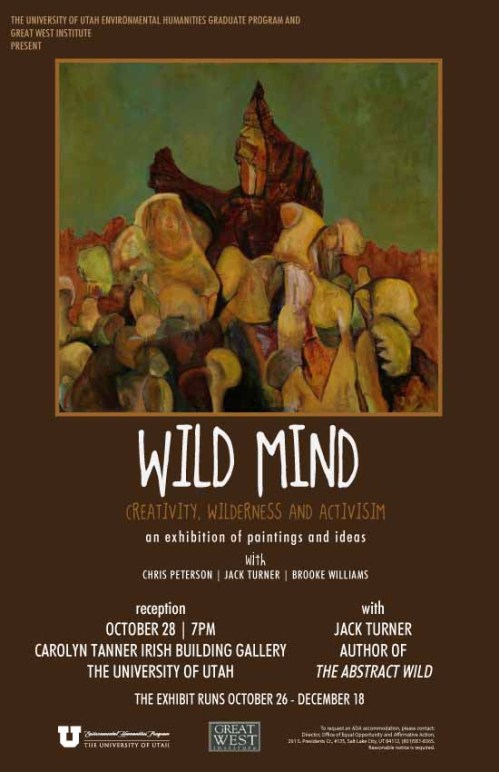For many reasons, these are important times in the story of permanently protecting some of the last remaining wild places in the lower 48 states. I’m talking specifically about Southern Utah’s vast red rock canyon country, where 9 million acres still meet the definition of Wilderness, according to the 1964 Wilderness Act. I really love this part of the world and lately I’m spending most of my time here working with the Southern Utah Wilderness Alliance, not walking in some unnamed canyon or laying on a warm rock and thinking or watching the different shapes clouds become as they move across the sky. No, I’m either in meetings with rural county commissioners who are somehow under the impression that Wilderness designation will hurt their constituents, or I’m driving back roads checking boundaries or looking for any clue that will help make a stronger argument.
talking specifically about Southern Utah’s vast red rock canyon country, where 9 million acres still meet the definition of Wilderness, according to the 1964 Wilderness Act. I really love this part of the world and lately I’m spending most of my time here working with the Southern Utah Wilderness Alliance, not walking in some unnamed canyon or laying on a warm rock and thinking or watching the different shapes clouds become as they move across the sky. No, I’m either in meetings with rural county commissioners who are somehow under the impression that Wilderness designation will hurt their constituents, or I’m driving back roads checking boundaries or looking for any clue that will help make a stronger argument.
That’s during the day. At night I’m looking for better ways to articulate why, during these times of changing climate, devastating earthquakes, political upheaval, and deep financial uncertainty, wilderness matters. Last night I pulled off of my shelf, William Ashworth’s book, The Economy of Nature, in which he makes a clear case for why environmental protection does not need to be at odds with the market economy. I wanted to revisit Ashworth’s discussion of “opportunity costs” as a way to measure value in developed and undeveloped land. He uses the example of a woodlot, where by cutting the trees and selling (more…)


You must be logged in to post a comment.